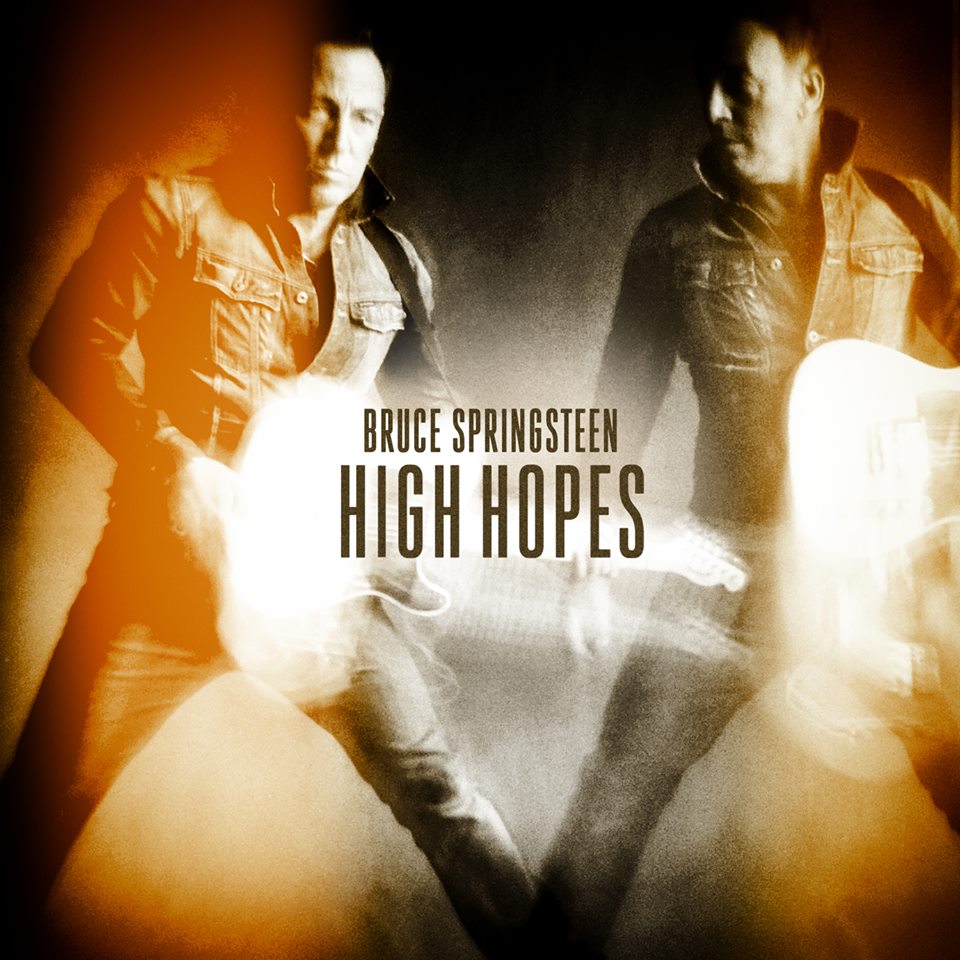
Highlighting the ups and downs of working-class life has always been the shtick for Bruce Springsteen’s career. Unfortunately for The Boss, the Vietnam-era listeners that gave him mainstream success are rapidly aging, and he seems thoughtfully aware of this in his newest album “High Hopes,” where he tries to add some youthful edginess to his trademark storytelling. The result is a disjointed canvas that Springsteen awkwardly strokes his music upon, sometimes painting within the lines and sometimes missing them completely.
Springsteen is known as The Boss because he has always appealed to the common American. To them, Springsteen knows how tough it is to exist while working a blue-collar, 9-to-5 job every day of the week to support a family; he understands that sometimes, the Establishment can just be unfair. This realistic portrayal tinged with optimism has been Springsteen’s calling card throughout his career.
Until “High Hopes,” that is. Right off the bat, Springsteen abandons his trademark storytelling style in the title song. In it, Springsteen sings about an ambiguous, down-on-his-luck family man who sees “a breathless army breaking like a cloud / They’re gonna smother love, they’re gonna shoot your hopes.” The meaning of this is unclear — who or what exactly is the unnamed man afraid of? The storyless lyrics are backed up by a cheesy shuffle beat, an even-cheesier funk guitar track and a tight horn line that can easily be mistaken for a line from a 70s disco hit. The different components of the song just don’t mix, exemplifying the worst of this album’s awkwardness.
“Frankie Fell in Love” is possibly Springsteen’s attempt at appealing to today’s youth who haven’t listened to much of his stuff. The Boss plays it safe here — it’s a love song with a simple pop beat that doesn’t reach beyond the three minute mark — and it works. The lyrics occasionally get sophisticated (at least for a pop song), with Springsteen crooning “Einstein and Shakespeare sitting, having a beer / Einstein trying to figure out the number that adds up to bliss / Shakespeare says, ‘Man, it all starts with a kiss.’” Well-written lyrics complementing an upbeat song, espousing a happy message — this is classic Springsteen. What a shame that one of the best songs on “High Hopes” just so happens to be the shortest.
And then there’s the album’s rendition of Springsteen’s classic “The Ghost of Tom Joad.” This song was recorded by Springsteen in 1995 as a slow, quiet folk song, but Rage Against the Machine guitarist Tom Morello plays alongside The Boss in this album’s heavier version, subduing the story with an overuse of guitar distortion and crashing drums that distract the listener from the song’s folksier message. Springsteen gambles on attracting the younger audience with the added edginess, but it’s precisely that new edge that makes it sound overblown.
At age 64, Bruce Springsteen is well aware that he holds a winning formula for creating great music that has worked in the past. But with “High Hopes,” it’s a case of style over substance, and the nice hits are easily matched by the painful misses.
Rating: 2.5 stars








